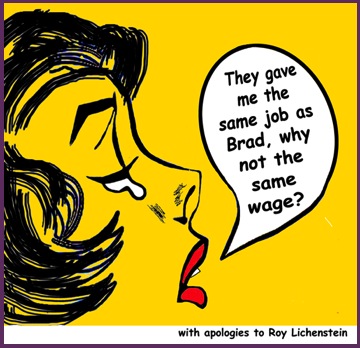
Plaques for women – still far from equality
The blue plaque outside 18 Brookside, where Millicent Garrett Fawcett, the veteran leader of Britain's constitutional suffragists, and her daughter, Philippa Fawcett, the first woman to obtain the top score in the mathematical tripos, lived in Cambridge, reads: "Henry Fawcett ... lived here with his wife and daughter, 1874-1884." The cause for which Emily Davison gave her life still has far to go.
Professor Mary Joannou
Cambridge
Equal Pay legislation came into force in the UK over 40 years ago but women still earn and own less than men. One in every five women in the United Kingdom lives in poverty. Women are more likely to be employed in low paid, part-time work. Part-time jobs are typically low paid and have fewer prospects for promotion and access to training.
The full-time gender pay gap between women and men is 15.5%
The pay gap varies across sectors and regions, rising to up to 55% in the finance sector and up to 33.3% in the City of London
Interruptions to employment due to caring work account for 14% of the gender pay gap
64% of the lowest paid workers are women, contributing not only to women's poverty but to the poverty of their children
There are almost four times as many women in part-time work as men. Part-time workers are likely to receive lower hourly rates of pay than full-time workers.
Nine out of ten lone parents are women. The median gross weekly pay for male single parents is £346, while for female single parents it is £194.4
Fawcett Society
Number of women and the number of men in the County Councils in Wales.
Leaders 1F, 21M
Chief Executives 6F, 16M
Councillors 302F, 951M
(full list)
The number of women elected to the Welsh assembly in 2011 has equalled the legislature's worst level, at 40%. By contrast, in 2003, the assembly had been the first in the world to achieve completely equal representation for men and women at 50:50
.
The number of women MPs rose to 142 (21.9%) following the May 2010 general election and constitutes the highest number ever elected. But this is still only 2.5% more women MPs than in the last Parliament and just under 4% more than won seats in the breakthrough year in 1997 (when 18.2% of the House of Commons were women). At this rate of 4% growth in 14 years it will be another century before parity of representation is secured.
In National Parliaments list the UK is now ranked joint 53rd in the world for female representation. In the European Parliament 33% of our MEPs are women putting us 18th out of 27 countries.
Hansard Society briefing paper
It is estimated that around 3 million women across the UK experience rape, domestic violence, forced marriage, stalking, sexual exploitation, trafficking and other forms of violence every year. This is the equivalent to the population of Wales.
Welsh Women’s Aid